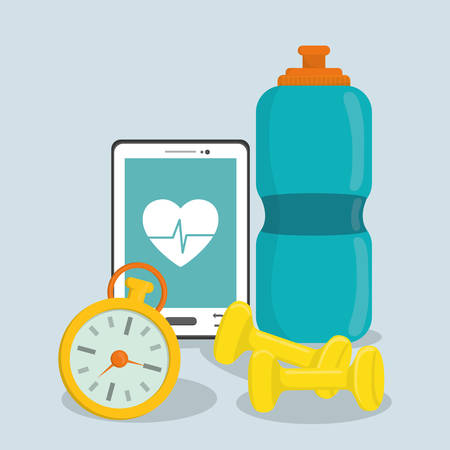Overview of the NHS and Mental Health Support
The National Health Service (NHS) plays a crucial role in safeguarding the physical and mental wellbeing of people across the United Kingdom. Established in 1948, the NHS is renowned for its commitment to providing comprehensive, accessible healthcare that is free at the point of use for all UK residents. While much attention is often given to medical treatment for physical injuries, the NHS also recognises that mental health is equally vital, particularly in cases of long-term injury recovery. Navigating life after a serious injury can be emotionally challenging, with individuals often facing issues such as anxiety, depression, and social isolation. In response, the NHS offers a wide range of mental health support services specifically designed to help patients cope with the psychological impact of their injuries. This support forms an integral part of holistic rehabilitation pathways, ensuring that mental wellbeing receives as much focus as physical healing during long-term recovery.
2. Common Mental Health Challenges During Long-term Injury Recovery
Recovering from a long-term injury is not only a physical journey but also a significant psychological challenge. Many individuals in the UK, supported by the NHS, encounter various mental health difficulties during this period. Understanding these challenges is crucial for effective support and recovery.
Psychological Difficulties Often Experienced
The process of adapting to changes caused by a long-term injury can be overwhelming. Below are some of the most common mental health issues faced:
| Mental Health Challenge | Description | Common Symptoms |
|---|---|---|
| Depression | A persistent feeling of sadness or loss of interest that affects daily functioning. | Low mood, fatigue, hopelessness, changes in appetite or sleep patterns. |
| Anxiety | Excessive worry, nervousness or fear related to recovery and future uncertainty. | Restlessness, irritability, difficulty concentrating, physical symptoms such as palpitations. |
| Adjustment Disorders | Emotional or behavioural symptoms in response to the stress of injury and lifestyle changes. | Tearfulness, withdrawal from social activities, difficulty coping with new routines. |
The UK Context: Unique Challenges
In the context of British culture and the NHS framework, people may also struggle with feelings of dependency on public services, concerns about stigma around mental health, and frustration with potential waiting times for specialist care. These factors can exacerbate emotional distress and make it harder to seek help promptly.
The Importance of Early Recognition
NHS professionals emphasise the importance of recognising these psychological symptoms early. Prompt intervention—whether through GP consultations, referrals to mental health specialists, or support groups—can mitigate long-term impacts and promote holistic recovery. Encouraging open conversations about mental health within the NHS system helps reduce stigma and ensures individuals receive comprehensive care throughout their rehabilitation journey.

3. Pathways to Accessing NHS Mental Health Services
Accessing mental health support through the NHS is structured yet flexible, ensuring that individuals recovering from long-term injuries can receive appropriate care tailored to their needs. The referral pathways are designed to accommodate varying levels of need and personal circumstances, integrating both professional and self-directed approaches.
The Role of GPs in Mental Health Referrals
General Practitioners (GPs) often act as the first point of contact for individuals struggling with mental health challenges during injury recovery. GPs assess mental wellbeing as part of holistic care and are trained to recognise signs of psychological distress. If required, they initiate referrals to specialist NHS mental health services, such as Improving Access to Psychological Therapies (IAPT) or community mental health teams. This ensures a coordinated approach, where physical and mental health are managed together, reflecting best practice in UK healthcare.
Self-Referral Options
Recognising that some may prefer direct access, the NHS also offers self-referral options for certain services. Programmes like IAPT allow patients to refer themselves online or via telephone without needing a GP appointment. This pathway reduces barriers for those who might feel uncomfortable discussing their mental health initially or face difficulties securing prompt GP appointments. Self-referral is particularly valued in British culture for promoting autonomy and reducing stigma around seeking psychological help.
Community-Based Programmes
In addition to clinical pathways, the NHS collaborates with local councils and voluntary organisations to provide community-based mental health programmes. These include peer support groups, talking therapies, and rehabilitation activities specifically tailored for those coping with long-term injuries. Community mental health hubs, social prescribing initiatives led by link workers, and partnership schemes with charities like Mind or Rethink Mental Illness offer accessible routes for ongoing support. This community focus reflects the British emphasis on social connection and holistic recovery.
Integration and Choice in Accessing Support
The combination of GP involvement, self-referral opportunities, and community-based resources creates a comprehensive network of support. Individuals can choose the pathway that feels most comfortable and relevant to their circumstances, ensuring timely intervention and continuity of care throughout their recovery journey.
4. Types of Support Available on the NHS
The NHS offers a comprehensive range of mental health support services tailored to individuals recovering from long-term injuries. These interventions are designed to address diverse needs, recognising that recovery is not just physical but also deeply psychological. Below is an overview of the primary types of support available:
Talking Therapies
Talking therapies are widely accessible through the NHS and are often considered the first line of intervention for those experiencing psychological distress during long-term injury recovery. These include Cognitive Behavioural Therapy (CBT), counselling, and group therapy. The Improving Access to Psychological Therapies (IAPT) programme allows individuals to self-refer or be referred by their GP for suitable talking therapies, ensuring timely and localised support.
Medication
For some individuals, medication may form part of their mental health treatment plan. NHS clinicians can prescribe antidepressants, anti-anxiety medications, or mood stabilisers as appropriate, particularly if symptoms such as depression or anxiety become severe or persistent. Medication is usually provided alongside other forms of psychological support and is carefully monitored by healthcare professionals to ensure safety and effectiveness.
Peer Support
Peer support initiatives provide opportunities for individuals to connect with others who have experienced similar injuries and recovery journeys. Many NHS trusts collaborate with local charities or community groups to facilitate peer-led sessions, either in-person or online. Sharing experiences within a supportive environment can foster resilience, reduce isolation, and enhance emotional wellbeing.
Digital Mental Health Resources
The NHS recognises the value of digital solutions in expanding access to mental health care. A variety of approved apps and online platforms offer guided self-help, mindfulness exercises, symptom tracking, and virtual therapy sessions. These resources can be especially beneficial for those with mobility challenges or who prefer remote access to support.
Overview Table: Types of NHS Mental Health Support
| Type of Support | Description | How to Access |
|---|---|---|
| Talking Therapies | Counselling, CBT, group therapy sessions tailored to injury recovery | IAPT self-referral or GP referral |
| Medication | Antidepressants, anti-anxiety drugs prescribed as needed | Consultation with GP or mental health specialist |
| Peer Support | Community-based or online support groups led by peers with lived experience | NHS partnerships with local organisations or self-enrolment |
| Digital Resources | Mental health apps, online therapy platforms, guided self-help tools | NHS-approved app library or direct sign-up online |
Summary
The NHS delivers a multi-faceted approach to mental health during long-term injury recovery, combining traditional face-to-face therapies with digital innovations and community-based peer support. This ensures that patients across the UK have equitable access to resources that match their individual preferences and clinical needs.
5. The Role of Multidisciplinary Teams in Injury Recovery
Within the NHS, a collaborative and multidisciplinary approach is fundamental to supporting individuals recovering from long-term injuries, particularly in addressing both physical and mental health needs. This integrated model brings together professionals from diverse specialisms, ensuring that patients receive holistic care tailored to their unique circumstances.
The Importance of Collaborative Approaches
Recovery from serious or long-lasting injuries often presents complex challenges, not only physically but also psychologically. The NHS recognises that effective rehabilitation requires more than isolated interventions; instead, it advocates for joined-up working between physiotherapists, psychologists, occupational therapists, and other healthcare professionals. By sharing expertise and maintaining open communication channels, these teams create personalised recovery plans that address the full spectrum of patient needs.
Integrating Mental Health and Physical Rehabilitation
A key strength of the multidisciplinary team lies in its ability to blend mental health support with physical rehabilitation. For example, physiotherapists focus on restoring movement and function, while psychologists help patients manage emotional responses such as anxiety or depression resulting from injury-related lifestyle changes. Occupational therapists further support this process by enabling individuals to regain independence in daily activities, which can be crucial for maintaining self-esteem and motivation during recovery.
Benefits for Patients
This integrated approach ensures that mental health considerations are embedded within every stage of physical rehabilitation. Patients benefit from coordinated care pathways where their progress is regularly reviewed by the team, adjustments are made based on evolving needs, and psychological wellbeing is prioritised alongside physical milestones. As a result, individuals are better equipped to overcome barriers to recovery and achieve improved quality of life post-injury.
6. Addressing Barriers to Mental Health Support
Accessing mental health support during long-term injury recovery within the NHS presents several significant challenges for patients. Understanding and addressing these barriers is crucial for ensuring equitable and effective care.
Stigma Surrounding Mental Health
Despite growing awareness, stigma remains a persistent issue in the UK, often discouraging individuals from seeking help. Many patients fear being judged or misunderstood by peers, family, or even healthcare professionals. This reluctance can delay intervention and exacerbate mental health issues related to injury recovery.
Waiting Times and Service Availability
The NHS faces high demand for mental health services, resulting in extended waiting times for assessments and treatment. For those dealing with both physical and psychological consequences of long-term injury, these delays can hinder recovery and increase distress. Limited availability of specialist services further compounds this issue, especially outside major urban areas.
Cultural Considerations and Inclusivity
Cultural background significantly influences how individuals perceive mental health support. Some communities may have taboos around discussing psychological wellbeing, while language barriers or a lack of culturally competent services can deter patients from engaging with available resources. The NHS continues to work towards inclusive approaches, but disparities persist.
Practical Steps Forward
Tackling these barriers requires a multi-faceted approach. Efforts to reduce stigma must continue through public education and open conversations about mental health within the context of injury recovery. Expanding digital resources and helplines can help bridge gaps caused by waiting lists, offering interim support to those in need. Furthermore, training healthcare staff in cultural competence ensures that support is respectful and responsive to the diverse needs of patients across the UK.
Conclusion
Addressing these challenges is vital for improving outcomes in long-term injury recovery. By recognising and actively working to overcome barriers such as stigma, service delays, and cultural differences, the NHS aims to make mental health support accessible for all who require it during their journey to recovery.
7. Resources and Further Help
While the NHS provides comprehensive support for mental health during long-term injury recovery, there are numerous additional resources available across the UK to complement NHS services. Seeking further advice or simply connecting with others can be invaluable in building resilience and maintaining wellbeing throughout your rehabilitation journey.
Charities Specialising in Mental Health
There are several well-established charities in the UK that offer free and confidential support. MIND provides information, helplines, and local services for those struggling with mental health issues related to injury. Samaritans offers a 24-hour helpline for anyone feeling distressed or in need of someone to talk to. Rethink Mental Illness focuses on practical advice and peer support groups, while The Silver Line is dedicated to supporting older adults who may feel isolated during their recovery.
Helplines for Immediate Assistance
If you require urgent emotional support, several helplines operate nationwide. The NHS 111 service can direct you to immediate care or crisis teams if necessary. Samaritans (116 123) is available day and night for confidential conversations. For young people, Childline (0800 1111) offers tailored advice and a listening ear.
Trusted Online Portals and Information Hubs
The NHS website (www.nhs.uk) provides up-to-date information about mental health conditions, self-help resources, and guidance on accessing NHS mental health services. NHS Every Mind Matters delivers personalised action plans and tips for managing low mood, anxiety, and stress during long-term recovery. For those seeking community-based advice, HealthTalk.org features real-life stories from individuals recovering from injuries, offering reassurance and practical strategies.
Specialist Support Services
Certain injuries may require specialist support. Organisations such as Headway (for brain injury), Spinal Injuries Association, or LimbPower (for amputees and limb-affected individuals) provide tailored mental health resources alongside peer networks and advocacy services.
How to Access These Resources
Your GP or NHS caseworker can signpost you to appropriate external support based on your specific needs. Many charities offer online chat functions, email support, or local drop-in sessions for personal guidance. Remember, reaching out is not a sign of weakness but an important step towards holistic recovery.
Tapping into these diverse sources of help ensures you are not alone in facing the psychological challenges of long-term injury recovery. Combining NHS provisions with charitable, helpline, and digital resources empowers you to take control of your mental wellbeing at every stage of the healing process.


